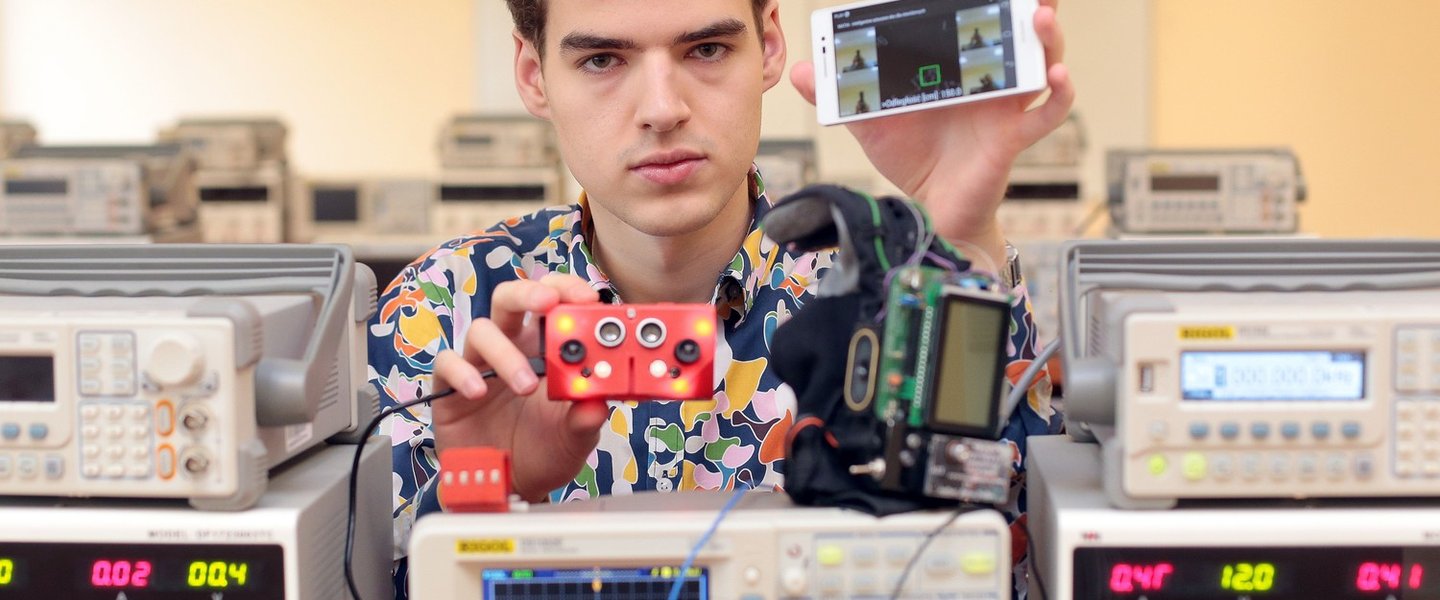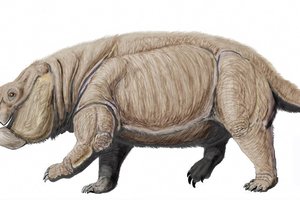Matia - student invention will lead the blind through the world
It warns about a garbage can on the road, signals for pedestrian crossing, and even vibrates on the skin or rings with the sounds of instruments. The device MATIA, designed by a student of Bialystok University of Technology - Petros Psyllos, will help the blind navigate the world by involving several senses.
"A blind person leaving the house will take a device the size of a matchbox, pinned it to his or her shirt, put headphones on, take even the cheapest smartphone and will have a system that will help navigate the environment and move freely in the streets" - told PAP student of Bialystok University of Technology, Petros Psyllos.
His invention - MATIA, it is still in the prototype stage, but already conquers international exhibition of inventions. Its creators participated in the global finals of Imagine Cup, which took place in late July in Seattle.
The device has sensors and a small cam. The heart and its most important part, however, is a special module that processes the signals from cam and sensors, and forwards them to the smartphone with headphones and a special vibrating belt.
"We use artificial intelligence, methods that resemble the functioning of the human brain, including associative memory. The whole system is tries to describe what we have before us. At the same time, our invention uses thousands of different categories of everyday objects. It can identify basic objects without having to connect to the Internet - such as doors, bus stops, chairs etc. The device connects to a smartphone, then - using categories - through words and music describes the environment to a blind person" - explained Petros Psyllos.
Imagine that a blind person walks along the sidewalk and there are two obstacles ahead. The device will say: beware of a pole on your left, go a little to the right, but cautiously, because there is a trash can nearby. The user can also pre-select a specific route, for example the way home. MATIA will suggest: if you want to go across the street, you are near a crossing.
Although the device alerts to any obstacles on the road, its creators recommend that the blind should not give up the sticks. "It is not just a source of information for the blind, but also a signal to others that the person might need help or we should be more cautious, for example, when we pass this person by bike" - explained Psyllos.
When working on the invention, the Bialystok University of Technology student used the knowledge of changes in the functioning of the brain in blind people. "Of all the information from the outside world, we receive 80 percent through the eyes. But what happens when we lose sight? Centres, which used to process visual information, are now involved in processing auditory information. In short you can say that blind people can hear more. I can take advantage of this fact" - emphasised Petros Psyllos.
Therefore, to help the blind navigate the environment the system MATIA not only "speaks" to the user about the space around him, but also enhances communication with other sounds (some resemble the sounds of instruments). A blind person has to first learn a special "code": the associations between sounds and individual elements of reality.
If someone wants to navigate even faster, he can add a special belt that will send signals to the blind about the environment by vibrating at specific spots. "If an obstacle is on the left, the left back side vibrates. If it is in the middle - the middle part will vibrate" - Psyllos described.
According to Petros Psyllos, the belt is an additional source of information, much faster than verbal information. "Long before the device can say: a trash can on the left, the belt will signal this with vibration. At first it does not matter, what the obstacle is exactly. The information that it is a trash can come later" - he explained.
Currently MATIA Matia resembles a compact camera. According to Petros Psyllos, in the event of implementation the most important step will be its miniaturization (to the size of a matchbox).
The idea was created and is being developed in consultation with the blind. Petros Psyllos assured that scientists specialising in biomedical engineering are involved in the work, and the Bialystok Diamond Explorers Association provides financial support.
Ewelina Krajczyńska
Source: PAP - Science and Scholarship in Poland
30.11.2016







